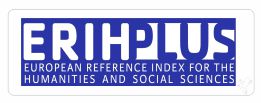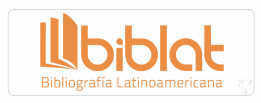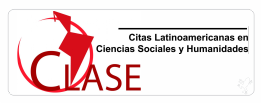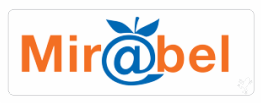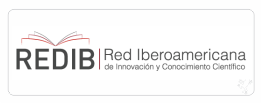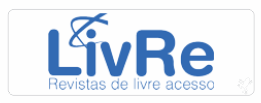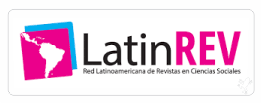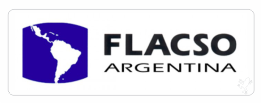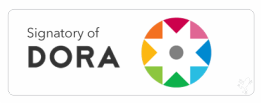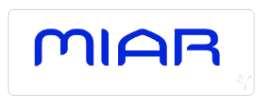Fostering EFL reading comprehension through the implementation of critical thinking questionnaires in a VLE
DOI:
https://doi.org/10.34069/RA/2023.12.07Palabras clave:
critical thinking, Virtual Learning Environments, reading comprehension, English as a Foreign Language.Resumen
Our research is framed within a qualitative research study which follows an action-research design. The study aimed at analyzing the impact that critical thinking questionnaires through a VLE have on the development of EFL reading comprehension among ninth graders from different schools located in the southern region of Colombia which includes Caquetá, Huila, and Tolima. We implemented fieldnotes, surveys, and students’ artefacts as data gathering tools. The findings evidence that the participants enhanced higher order thinking skills and fostered the development of spaces for reflection in which they practiced reading strategies and were involved in contextualized stories. Besides, the interaction between peers in the VLE allowed the participants to co-construct new perspectives, beliefs, and ideas.
Descargas
Citas
Alyousef, H. S. (2005). Teaching reading comprehension to esl/efl learners. The Reading Matriz, 5(2), 143-154.
Ardhian, T., Ummah, I., Anafiah, S., & Rachmadtullah, R. (2020). Reading and Critical Thinking Techniques on Understanding Reading Skills for Early Grade Students in Elementary School. International Journal of Instruction, 13(2), 107-118. https://doi.org/10.29333/iji.2020.1328a
Barjesteh, H., & Vaseghi, R. (2012). Critical thinking: A reading strategy in developing English reading comprehension performance. Journal of Foreign Language Teaching and Translation Studies, 1(2), 21-34.
Blaževi?, T. (2013). Analysis of the Extent to which Critical Thinking is Promoted in Examination Questions in the History High School Matriculation Examination Papers of Australia and Croatia. Journal of Educational and Social Research, 3(3), 351. https://doi.org/10.5901/jesr.2013.v4n3p351
Bloom, B., Englehart, M., Furst, E., Hill, W., & Krathwohl, D. (1956). Taxonomy of educational objectives: The classification of educational goals. Handbook I: Cognitive domain. Longmans, Green.
Burns, A. (1999). Collaborative action research for English language teachers. Cambridge University Press.
Cain, K., & Oakhill, J. (1999). Inference making ability and its relation to comprehension failure in young children. Reading and writing, 11(5-6), 489-503 https://doi.org/10.1023/A:1008084120205
Creswell, J. (2012). Educational Research: Planning, Conducting, and Evaluating Quantitative and Qualitative Research. Pearson.
Denzin, N. (2006). Sociology methods: A sourcebook (5th ed.). Aldine Transaction.
Ellis, R. (2015). Understanding Second Language Acquisition. Oxford University Press.
Grabe, W., & Stoller, F. L. (2002). Teaching and researching reading. Pearson Education Limited.
Ennis, R. (1985). A logical basis for measuring critical thinking skills. Educational leadership, 43(2), 44-48.
Facione, P. (1990). Critical thinking: A statement of expert consensus for purposes of educational assessment and instruction (The Delphi Report). Insight Assessment.
Glaser, B., & Strauss, A., (1967). The discovery of grounded theory. Aldine Publishing Company, Hawthorne.
Glaser, B., & Strauss, A. (2017).?Discovery of grounded theory: Strategies for qualitative research. Routledge. https://doi.org/10.4324/9780203793206
Han, S. J., Chae, C., Macko, P., Park, W., & Beyerlein, M. (2017). How virtual team leaders cope with creativity challenges. European Journal of Training and Development. https://doi.org/10.1108/EJTD-10-2016-0073
Hedge, T. (2001). Teaching and Learning in the Language Classroom. Oxford University Press.
Herrera, L. (2017). Impact of implementing a virtual learning environment (VLE) in the EFL classroom. Íkala, Revista de Lenguaje y Cultura, 22(3), 479-498. https://doi.org/10.17533/udea.ikala.v22n03a07
Hrastinski, S. (2008). Asynchronous and synchronous e-learning. Educause quarterly, 31(4), 51-55.
Kagnarith, C., Theara, C., & Klein, A. (2007). A Questionnaire Project: Integrating the Four Macro Skills with Critical Thinking. English Teaching Forum, 45(1), 2-9.
Karbalaei, A. (2011). Metacognition and reading comprehension. Íkala, revista de lenguaje y cultura, 16(28), 5-14.
Kim, H. (2008). Beyond motivation: ESL/EFL teachers' perceptions of the role of computers. Calico Journal, 25(2), 241-259. https://doi.org/10.1558/cj.v25i2.241-259
Kitzinger, J. (1994). The methodology of focus groups: the importance of interaction between research participants. Sociology of health & illness, 16(1), 103-121. https://doi.org/10.1111/1467-9566.ep11347023
Knight, S. (2009). Effective Practice in a Digital Age. A guide to technology-enhanced learning and teaching. Higher Education Funding Council for England (HEFCE).
McCarthy, M. (2011). Discourse analysis for language teachers. Cambridge University Press.
Molina, L. (2018). The impact of strategy-based workshops on tenth graders reading comprehension. (Master’s tesis), Universidad Externado de Colombia, Bogotá, 2018.
Nappi, J. (2017). The importance of questioning in developing critical thinking skills. Delta Kappa Gamma Bulletin, 84(1), 30.
Neilsen, A. (1989). Critical Thinking and Reading: Empowering Learners To Think and Act. Monograph on Teaching Critical Thinking Number 2. Oryx Press.
Ogbonna, C., Ibezim, N., & Obi, C. (2019). Synchronous versus asynchronous e-learning in teaching word processing: An experimental approach. South African Journal of Education, 39(2). https://doi.org/10.15700/saje.v39n2a1383
O’Malley, J., Chamot, A., Stewner-Mazanares, G., Russo, R., & Kupper, L. (1985). Learning strategies applications with students of English as a second language. TESOL Quarterly, 19(3), 285-296. https://doi.org/10.2307/3586278
Orey, D., & Rosa, M. (2018). Developing a mathematical modelling course in a virtual learning environment.?ZDM,?50(1), 173-185. https://doi.org/10.1007/s11858-018-0930-8
Oxford, R. (2016). Teaching and Researching Language Learning Strategies. Routledge.
Parsons, R., & Brown, K. (2002). Teacher as reflective practitioner and action researcher. Wadsworth/Thomson Learning.
Rios, S., & Valcárcel, A. (2005). Reading: A meaningful way to promote learning English in high school. PROFILE, Issues in Teachers' Professional Development, 6, 59-72.
Roebl, K., & Shiue, C. (2003). Developing reading comprehension skills in EFL university level students. St. John's University: Taiwane.
Uccelli, P., Galloway, E. P., Barr, C. D., Meneses, A., & Dobbs, C. L. (2015). Beyond vocabulary: Exploring cross-disciplinary academic-language proficiency and its association with reading comprehension. Reading Research Quarterly, 50(3), 337–356. https://doi.org/10.1002/rrq.104
Zielnski, J. (1990). Color coding basics. Records management quarterly, 24(3), 34-37.




